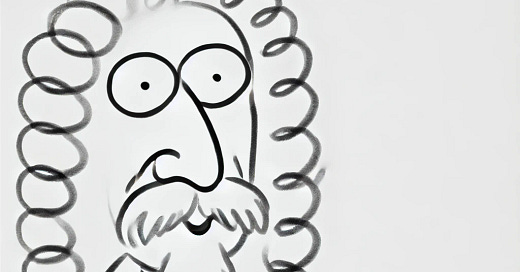Is Ours the Best of All Possible Worlds?
Assume God’s existence and let’s ask: Is this the best of all possible worlds?
Assume God’s existence and let’s ask: Is this the best of all possible worlds?
Here are (at least some of) the options:
Yes, it is, and here’s how I know from the world.
Proceed to give some story that demonstrates why this is the best of all possible worlds (probably focusing on the realization of so many different kinds of goods).It isn’t, and here’s how I know from the world.
Proceed to give some story that demonstrates why this isn’t the best of all possible worlds (probably focusing on horrendous evils).Yes, it is, and here’s how I know from my theory.
Proceed to give a story of why theism entails (or makes highly probable) the best of all possible worlds. This was effectively Leibniz’s position; he thought God + the principle of sufficient reason guaranteed that this was the best of all possible worlds since his version of PSR demanded contrastive explanations—that is, some reason why God chose this world versus any other. The answer? This is somehow the best, even if we don’t see it. For what it’s worth, I think something like this was also Plato’s position.It isn’t, because there can’t be a best of all possible worlds.
Proceed to give reasons why the idea of a best possible world doesn’t make sense—maybe there can be a best possible being, but not a best possible world (i.e., say something about there could always be another good thing, like an additional hula dancer or the sudden return of Blockbuster video).
Out of these options, 3 and 4 have always seemed the most plausible to me. However, here’s an option that might fall somewhere between them: God created many worlds, perhaps infinitely many (by the principle of plentitude). There is a lower bound of goodness that God would not drop below, but no upper bound. This would make our world part of the best possible type of creation, but where we are on the scale is anyone’s guess.1 For all we know, we might be very close to the lower bound—heck, maybe we are the lower bound!
Or maybe not. After all, this sort of thing is really hard to judge given our limited perspective: we obviously haven’t seen how everything plays out.
If memory serves, something like this was once Timothy O’Connor’s view.




Only one thing is logical.
It’s the best of all possible worlds.. Otherwise, this really smart and powerful entity couldn’t get it done. He created something with no objectives or objectives He couldn’t meet. I’m sorry but my God has objectives and gets it done. By definition!
So we have to focus on why this is the best of all possible worlds and what this means. What are its objectives?
Now some reflection which could definitely be flawed is that what seems imperfect is actually part of a series of perfect trade offs. Do we live in a universe of perfect imperfects? In other words God created a large series of trade offs so that each one by itself is less than perfect but taken together is the optimal way to meet objectives.
It’s kind of hard to imagine anything less.
Aside: we will never know what the perfect number of Hula dancers will be.